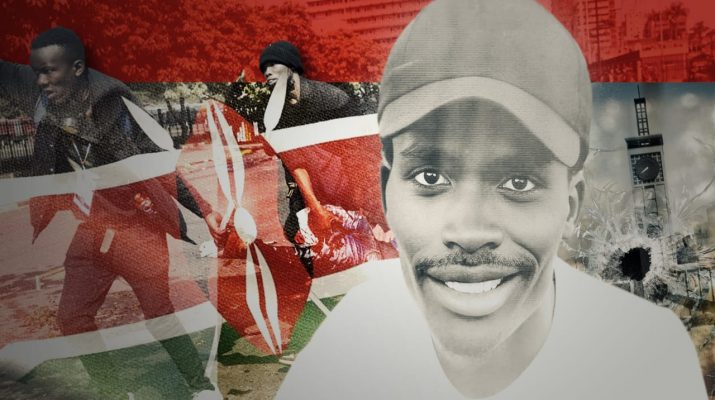By BBC Africa Eye and KU Radio
A new BBC Africa Eye investigation, Blood Parliament, has identified the Kenyan security officers responsible for the fatal shooting of anti-tax protestors outside the country’s parliament in June 2024.
The investigation pieces together the events of 25 June 2024, when demonstrators protested against the controversial finance bill. The aftermath of the protest resulted in the deaths of at least three young men near Kenya’s Parliament: David Chege, a 39-year-old software engineer and Sunday school teacher, Ericsson Mutisya, a 25-year-old butcher and Eric Shieni, a 27-year-old finance student.
Using open-source intelligence (OSINT) methods – a key tool in investigative journalism to make sense of complex events – BBC Africa Eye analysed more than 5,000 images to piece together the sequence of events leading to the deaths of these three men.
The analysis found that none of the three men killed were armed.
Despite a parliamentary committee ordering Kenya’s Independent Policing Oversight Authority (IPOA) to investigate the parliament killings and other deaths on the streets of Nairobi – and make public their findings – no report has yet been issued and no-one has been held to account.
In the absence of a published official investigation, BBC Africa Eye analysed videos and photos taken by protestors and journalists on the day. Through the examination of camera metadata, livestream timings, and public clocks visible in shots, coupled with a 3D reconstruction of the site BBC Africa Eye pinpointed the locations where the three protestors were killed and identified some of the officers responsible for firing the shots. The investigation found that one of the officers responsible for firing the shots works for Kenya’s Defence Forces (KDF) and the other for the Police Force.
One of the videos analysed by the BBC captured a plain-clothed police officer shouting “uaa!”, the Swahili word for “kill”. Seconds later, a police officer knelt, gunshots were heard, and protestors in the crowd collapsed. The officer fatally shot David Chege and Ericsson Mutisya.
Through the analysis of the weapons, body armour, riot shields and headgear of every police officer on the scene, the BBC was able to identify the officers responsible for the deaths of all three men.
Reacting to the video of Eric Shieni’s shooting by an officer, Faith Odhiambo, president of the Law Society of Kenya said it was “very clear that the aim was to kill those protestors”. She added: “They could have had him arrested. But the fact that they shoot his head – it was clearly an intention to kill.”
Bertram Hill, Producer Director for BBC Eye’s OSINT team: “Blood Parliament is a testament to the power of combining open-source intelligence (OSINT) with traditional investigative journalism. The BBC Africa Eye team analysed thousands of publicly available pieces of evidence – from photos and videos to news reports – to piece together the events at the Parliament of Kenya on June 25th, 2024. This investigation shows how far cutting-edge OSINT, in tandem with fact-finding, can go towards uncovering hidden truths and holding power to account.”
The BBC put its allegations to Kenya’s police service, and it said the force could not investigate itself, adding that the Independent Policing Oversight Authority (IPOA) was responsible for investigating alleged misconduct.
The Kenyan Defence (KDF) told the BBC the IPOA had not forwarded any request to look into its personnel involved in the operations at parliament. It added: “The KDF remains fully committed to upholding the rule of Law and continues to operate strictly within its constitutional mandate.”

